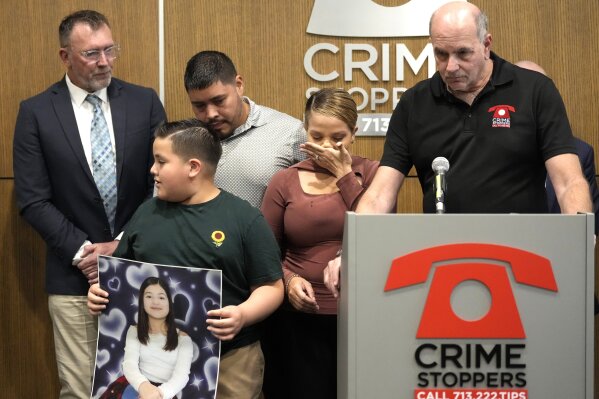Judge orders anonymous jury for trial of self-exiled Chinese businessman, citing his past acts
NEW YORK (AP) — A self-exiled Chinese businessman is set to face an anonymous jury at his trial next month on fraud charges after a judge on Wednesday cited his past willingness to tamper with judicial proceedings as reason for concern.
Guo Wengui goes to trial May 22 in Manhattan federal court, where jurors will be escorted by U.S. marshals in and out of the courthouse, according to an order from Judge Analisa Torres.
Lawyers for Guo agreed that the jury should be anonymous, saying in court papers that “protective measures are justified by the actions and potential actions” of the Chinese Communist Party, “who has not hesitated to use each and every means at its disposal to attack” him, the judge noted in her written order.
She also said defense lawyers oppose the claims by prosecutors that an anonymous jury was necessary on the grounds that Guo has used his organization to harass and threaten critics, and because of his “extensive obstructive conduct” and substantial media attention.
“From our prospective, it would be appropriate due to the actions and potential actions the Chinese Communist Party may take,” defense attorney Sid Kamaraju said of an anonymous jury in an interview, repeating what the defense asserted in court papers.



Torres said she had previously found that Guo has demonstrated a willingness to tamper with judicial proceedings when he posted videos and social media posts encouraging followers to “persevere” with protests at the homes and offices of a bankruptcy trustee and his lawyer, resulting in threats and harassments against the trustee and his associates.
The judge also said she chose not to address concerns by Guo’s lawyers about the Chinese Communist Party targeting their client because the rationale from prosecutors was sufficient to order an anonymous jury.
Guo, arrested in March 2022, has pleaded not guilty to charges including wire and securities fraud after prosecutors claimed he cheated thousands of investors in too-good-to-be-true offerings that promised outsize profits for investors in his media company, GTV Media Group Inc., his so-called Himalaya Farm Alliance, G’CLUBS, and the Himalaya Exchange.
Prosecutors allege that he used proceeds from a five-year fraud scheme starting in 2018 to buy extravagant goods and assets for himself and his family, including a 50,000-square-foot mansion, a $3.5 million Ferrari, two $36,000 mattresses and a $37 million luxury yacht. His lawyers, though, have said he is broke.
In court papers, defense lawyers have criticized the government’s theory that Guo was driven by greed, saying jurors would be entitled to conclude that his actions stemmed from “the constant threat of death” as a result of political beliefs.
They wrote that Guo “would not abandon those beliefs for a piano or luxury suits, particularly when he was able to purchase those things for himself without risking the movement.”
Guo was once thought to be among the richest people in China before he left in 2014 during a crackdown on corruption that ensnared individuals close to him, including a top intelligence official. Chinese authorities have accused Guo of rape, kidnapping, bribery and other offenses.
Guo has said those allegations are false and were meant to punish him for publicly outing corruption and criticizing leading figures in the Communist Party. Prosecutors, who had previously listed Guo as “Ho Wan Kwok” in court papers, changed his name to Miles Guo on Wednesday, saying it was the name by which he is most commonly known.
Disclaimer: The copyright of this article belongs to the original author. Reposting this article is solely for the purpose of information dissemination and does not constitute any investment advice. If there is any infringement, please contact us immediately. We will make corrections or deletions as necessary. Thank you.


